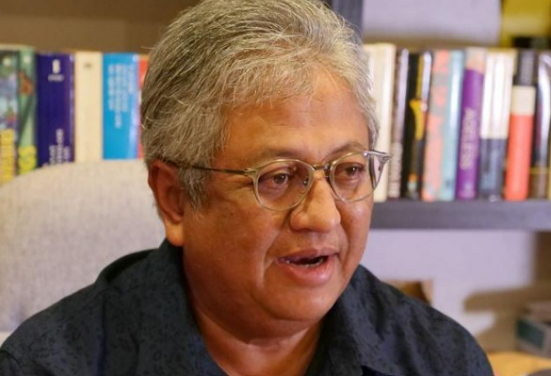Breaking Chains: Zaid Ibrahim's Bold Stand for Economic Equality
6 Apr 2024 • 8:30 PM MYT
Zulaikha Farhana
A versatile freelancer, blogger, and content writer

focusmalaysia
In a no-holds-barred statement, former law minister Datuk Zaid Ibrahim unleashed scathing criticism on Perkasa's recent call to boycott Petronas. The controversy arose following Petronas' decision to award a solar panel installation contract to a non-Bumiputera company. Zaid's impassioned remarks were aired during an interview on X this morning, where he urged Malays to reject political figures and parties failing to advance their interests.
Zaid minced no words, declaring, “Malays must hit where it hurts – boycott those Malay parties and leaders who turn a blind eye to our community's progress.”
He underscored the pressing need for sweeping economic reforms. According to him, Petronas' selection of Solarvest, based on merit rather than ethnicity, highlights the dearth of competitive Malay enterprises. Zaid didn't hesitate to highlight past setbacks, citing Datuk Seri Ismail Sabri Yaakob's unsuccessful endeavor to empower Malays through the short-lived Mara mall chain.
"Malays are expected to compete on a level playing field, but the system is rigged against us. With the current setup, Malay businesses can't thrive. How can Malays succeed when the odds are stacked against them?" Zaid passionately questioned.
He demanded a radical departure from existing economic policies, lamenting the absence of a progressive Malay party. Zaid chastised current leaders for their inertia in challenging the status quo, accusing them of apathy towards Malay struggles.
"Our leaders are entrenched in their comfort zones, unwilling to disrupt the system. They prioritize politics over addressing economic grievances," Zaid asserted.
Furthermore, Zaid advocated for a return to the nationalized industries of the 1970s, arguing that privatization has marginalized Malays for too long.
"We must regain control over critical sectors like cement and technology. Privatization has only widened the disparity," he stressed.
Zaid's bold stance resonates as a clarion call for Malays to demand genuine economic empowerment and fair opportunities. It's a rallying cry against vested interests and a plea for leaders committed to progress rather than politicking.
Zaid Ibrahim's bold stance has ignited a fervent debate across the nation, with many Malaysians echoing his sentiments and calling for substantive changes in economic policies. His words have struck a chord, resonating with those who feel marginalized by the current system and yearning for a fairer, more inclusive society.
In the wake of Zaid's impassioned plea, voices from various sectors are amplifying the call for action. Social media platforms buzz with discussions, with hashtags like #EconomicJusticeForAll and #FairOpportunities trending nationwide. Malaysians from diverse backgrounds are joining the chorus, demanding accountability from political leaders and advocating for policies that level the playing field.
Business leaders, academics, and activists are also adding their voices to the conversation. Many echo Zaid's call for a return to a more interventionist economic approach, arguing that privatization has often led to monopolies and hindered the growth of small and medium-sized enterprises, particularly those owned by Malays.
Moreover, Zaid's critique has sparked introspection within political circles. Some leaders are reassessing their priorities, recognizing the urgency of addressing economic disparities and fostering genuine inclusivity. Calls for intra-party reforms and a focus on meritocracy over ethnocentrism are gaining traction, signaling a potential shift in Malaysia's political landscape.
However, not everyone is receptive to Zaid's message. Critics argue that his proposals risk reverting to outdated policies that stifled innovation and economic dynamism. They caution against overly interventionist measures, advocating instead for targeted interventions to support marginalized communities while maintaining a conducive environment for business growth.
Amidst the debate, one thing remains clear: Zaid Ibrahim's impassioned critique has reignited discussions on economic equity and the role of leadership in shaping Malaysia's future. Whether his words will translate into concrete action remains to be seen, but one thing is certain – the call for change is growing louder by the day.
No comments:
Post a Comment